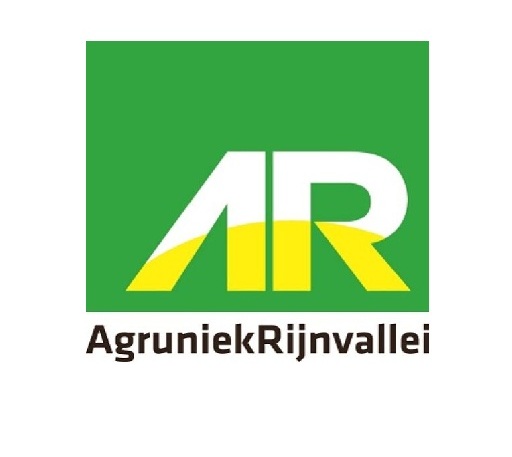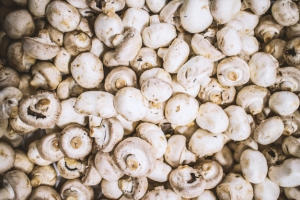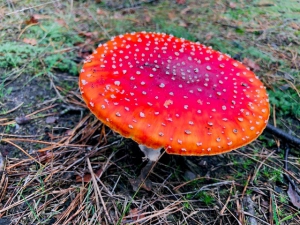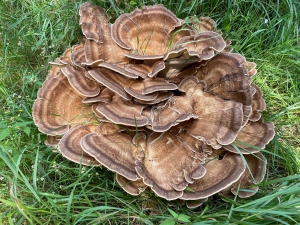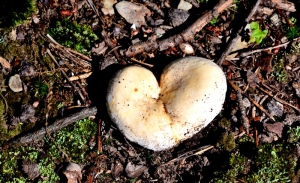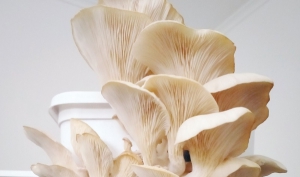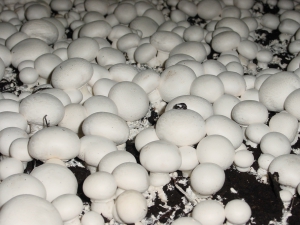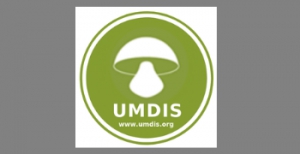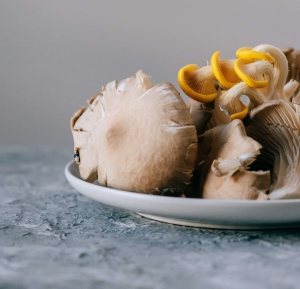
Mushroom Matter
Welcome on our platform. Why MUSHROOM MATTER? Because mushrooms play an important role in our lives as well in business. Our goal is to bring the world the very latest mushroom news with the upmost care to support the positioning of our beloved Mushroom.
- The global market for alternative proteins is growing fast.
- Mycoprotein from fermented mushrooms can create meat-free alternatives.
- Meat-free proteins are better for the environment than farmed meat.
- They could help create a more sustainable food system
Fungi-focused food startups are starting to sprout almost overnight.
New producers are finding innovative ways to supply the growing market for alternative proteins, alongside plant-based burgers, sausages and “chicken” nugget substitutes made from soy, pea or other proteins.
Fermenting the root-like spores of specific mushrooms (using the same, age-old process that creates beer and bread) produces a protein rich, flavourless foodstuff called mycoprotein.
Please read the full article here.
Source: World Economic Forum
Mushrooming may seem like a fun activity, but it can also be quite dangerous. There are many types of mushrooms and many are edible and very delicious. Unfortunately, this does not apply to all species. Eating non-edible mushrooms that contain chemicals can make you seriously ill and even be fatal.
But how do you tell the difference between an edible and a poisonous mushroom?
Recognizing poisonous mushrooms can be life-saving, so that is why we like to give some very important tips.
Mushrooms with white gills are often poisonous, the same also applies to mushrooms with a ring around the stem and those with a volva. So it's important to dig around the base of a mushroom to look for it.
Mushrooms with a red color on the cap or stem, are also poisonous.
Symptoms of mushroom poisoning can range from stomach upset to organ failure, which can result in death. Severe symptoms do not always appear immediately after eating, often only when the toxin attacks the kidney or liver. This can be days or weeks later. Anyone who becomes ill after eating a poisonous mushroom should seek urgently medical attention.
These are the 7 most poisonous species growing around the world:
- Death Cap Mushroom (Amanita phalloides)
- as the name implies, the deadliest of all mushrooms
- and also be aware that they closely resemble Poland's popular, edible parasol mushroom - Conocybe Filaris
- Web Caps (Cortinarius rubellus)
- Autumn Skullcap (Galerina marginata)
- Destroying Angel (Amanita verna)
- Podostroma Cornu-Damae
- Deadly Dapperling (Lepiota brunneoincarnata)
So are you going out to pick mushrooms? Then make sure you pick an edible one to use in your risotto!
Over the entire world there are tons of days that are pinned to a topic. That’s the reason why on September 26 in Europe and on October 15 in America, people celebrate the fact that there are mushrooms in our lives, under the name (Inter)National Mushroom Day.
This day was created to give extra attention to the mushroom. If you never got beyond (oyster)mushrooms, then a world opens up to you in the forest. Because so much rain has fallen in the recent months, it’s really a 'Party in the forest'.
But on this day there is also the need to make the protection of habitats of rare and endangered mushrooms, more clear to the public.
You can pick mushrooms and easily grow them at home yourself! Or just continue to enjoy the mushrooms in the forest.
In case you didn’t already know, mushrooms are fleshy fruiting bodies of fungi and there are a variety of species. They are known for their high nutritional value and contain vitamins B and C, potassium, phosphorus, calcium, sodium and zinc. If you want to live a healthy life, eating delicious mushrooms are definitely recommended.
So put these dates in your diary and celebrate this day with delicious prepared mushroom dishes. This way you can have a lot of fun celebrating this special day!
A lot of studies and reports are writing about the beneficial facts of mushrooms and we like to see the increasing attention on our beloved mushroom. A lot of innovations are seen where companies are using fungi to achieve a sustainable future, for example in the clothing, construction, furniture and health industry. The recent Pandemic has even accelerated the importance of healthy food and a future without plastic. This article writes about the future of mushrooms and the impact on immunity for people and the planet.
This report reveals the top 5 ways mushrooms will play a role in protecting our immunity in 2026:
- Human and immunity: from the ancient use of mushrooms as medicines to immune-boosting everyday mushrooms converting light into vitamin D, an essential factor in our immune health.
- Food for immunity: how we will be ingesting mushroom’s vital nutrients, from supplements and burgers to drinks. Low in calories, high in nutritional value and considered to be brain boosters.
- Vitamin D: how vitamin D enhances our adaptive immunity and function, and a three-year study currently underway to explore the health benefits of Vitamin D in mushrooms.
- Planetary partners: vertically farmed in forgotten urban spaces, to plastic munching, how mushrooms are leading the smart farming revolution, secretly saving the health of our planet.
- Furniture to Martian mycelium: how mushrooms are being used to make furniture, coffins and to create habitats on lunar missions; mycelium - the compostable material that knows no bounds.
Please read the full article here.
Source: Weekly News
A Gisborne entrepreneur will soon open the region’s first “zero waste, grow your own mushroom” business that focuses on reusing waste products.
Mariska Van Gaalen is the founder of Mushroom Zero Waste an initiative that reuses plastic containers and waste materials to grow mushrooms in a sustainable way.
She says that for her to start a business meant being responsible for the entire life cycle of the product, and avoiding the production of any additional waste.
Ms Van Gaalen uses plastic containers collected from a restaurant to hold unused wooden shavings, coffee grounds and mycelium — the fungus — to grow native oyster mushrooms.
Please read the full article here.
Source: Gisborneherald, by Avneesh Vincent
Concerns over immune health and the pandemic has thrust the humble mushroom into the spotlight as experts hail the fungi’s ability to interact with gut microbes that influence healthy immune and inflammatory responses.
Please read the full article here.
Source: Nutra Ingredients
We are happy to announce that we have teamed up with the organization of the Ukrainian Mushroom Days as Information Partner. For more information about the event or registration, please visit their website here!
Furthermore we would like to introduce the organization of this event to our readers. UMDIS is one of the largest information agencies and communicational platforms for mushroom business in Eastern Europe and the only one in the Ukraine.
UMDIS is one of the biggest in Eastern Europe and the only one in Ukraine information agency and communicational platform for mushroom business.
95% of the mushroom producers in Ukraine and 90% of the mushroom producers in Russia are their audience who read UMDIS and participate in projects of UMDIS. 15% of UMDIS`s audience are Russian speaking mushroom producers from Belarus, Kazakhstan, Uzbekistan, Moldova, and Poland.
UMDIS as a news agency has been operating since 2012. They publish news, analytics, interviews, publications on technology, etc. UMDIS organizes for mushroom producers number of courses, trips, consultations. Also UMDIS is the organizer of popular projects, such as “Series of Mushroom Web-Events”, project “Getting to know suppliers”, Exhibition-Conference Ukrainian Mushroom Days. Nowadays UMDIS Agency is trusted by Russian-speaking mushroom producers because it daily provides essential information, connects with colleagues, experts, and with trusted suppliers in the industry.
Why advertise via UMDIS?
The UMDIS Information agency`s website (https://www.umdis.org/) has 1200-1500 visits per day – nearly all visitors are target mushroom audience. Also, UMDIS manages popular mushroom channels, groups, deliveries.
Readers of UMDIS Mushroom Information Agency and participants of UMDIS projects are:
▪ owners and managers of mushroom farms;
▪ supply and sales teams;
▪ technologists and consultants;
▪ suppliers of mushroom market.
UMDIS is a good opportunity to instantly message and advertise to the whole Russian-speaking audience of mushroom farmers – or to the targeted audience according to the criteria you have.
With their mushroom-based pork alternative, Baltimore-based company Meat the Mushroom is working to encourage consumers to adopt healthy, plant-based diets.
The company’s first product, a bacon alternative known as SHROOMACON, consists of five ingredients and is free of preservatives, soy, gluten, and cholesterol.
Founders of the company Marvin Montague and Aleah Rae Dorsey, originally intended to open a vegan restaurant that didn’t rely on soy as the primary protein source. Hoping to develop a more natural, non-processed alternative Montague began experimenting with ways to give mushrooms a meatier texture.
Over time, Montague realized that he could have a greater impact if he focused his efforts on retail products. “I see the people around me could benefit from going vegan, but they just don’t know [the benefits],” Montague tells Food Tank. “And if they do know, it’s hard to kick animal products.”




